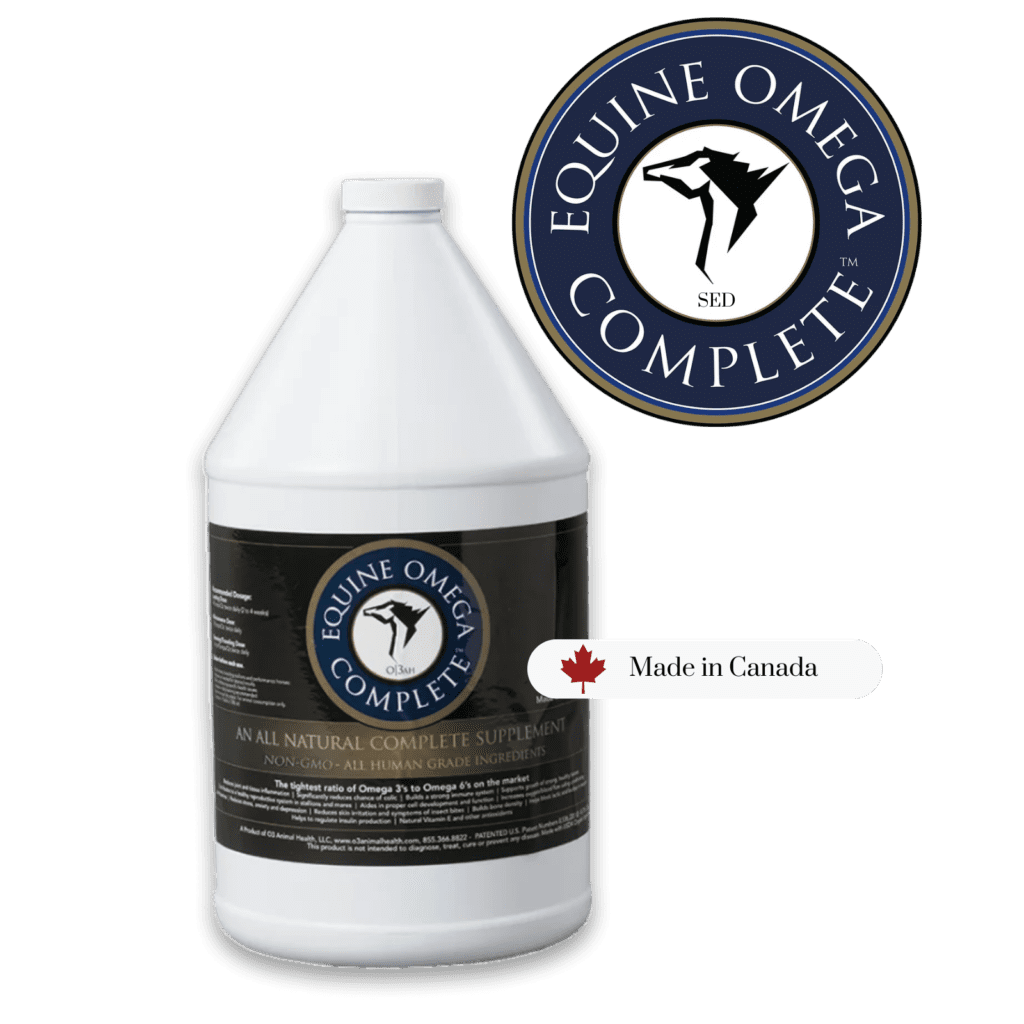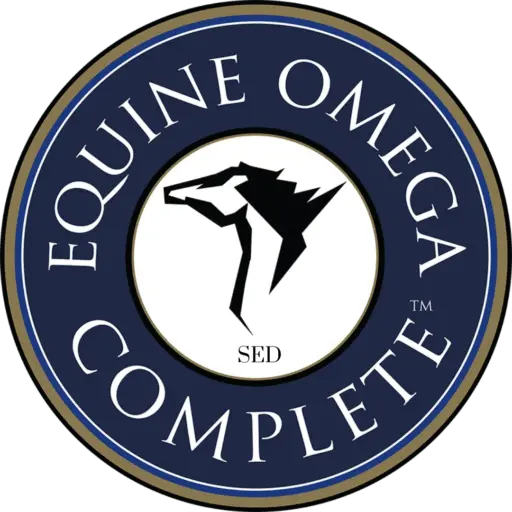Gastric ulcers in horses primarily affect the stomach lining, often arising from factors like stress, a high-grain diet, intermittent feeding, and intense exercise. Equine Omega Complete can help prevent ulcers in horses.
A horse’s stomach is divided into two regions: the upper squamous mucosa, which is vulnerable to ulcers, and the lower glandular mucosa, which produces acid continuously. Disruptions in the delicate balance of acid production and protective mechanisms can lead to ulcer development.
Gastric ulcers are a prevalent concern among horses, impacting their health, performance, and overall well-being. Horse owners are turning their attention to Equine Omega Complete® as a potential ally in the battle against gastric ulcers.
Anti-Inflammatory Properties
Omega-3 fatty acids, especially EPA, are renowned for their anti-inflammatory properties. Gastric ulcers cause inflammation, which exacerbates the damage to the stomach lining. Equine Omega Complete is a natural anti-inflammatory agent that mitigates the inflammatory processes associated with ulcer formation.
Protective Mucosal Layer
The mucosal layer in the stomach acts as a protective barrier against acid. Disruptions in this barrier can contribute to ulcer development. Omega-3 fatty acids enhance this protective mucosal layer, creating a more resilient defence against ulcerogenic factors.
Balancing Omega Fatty Acids
An omega-3 to omega-6 ratio imbalance has been linked to inflammatory conditions. With its balanced omega fatty acid composition, Equine Omega Complete strives to rectify this ratio. This balance may contribute to overall health, potentially impacting the inflammatory environment in the stomach.
Conclusion
While Equine Omega Complete cannot be touted as a cure for gastric ulcers. Its multifaceted approach to health, inflammation reduction, and potential mucosal support make it a promising adjunct in managing gastric health in horses. As with any health concern, consulting with a veterinarian is crucial for a comprehensive approach. Equine Omega Complete, with its omega-3 richness, showcases the interconnectedness of nutrition and health, offering a holistic approach to equine well-being.

Equine Omega Complete
This blend of DHA and EPA essential omega fats and natural antioxidants supports inflammatory response, performance recovery, insulin regulation, and weight management while ensuring strong hooves and a radiant coat. Equine Omega Complete® is a unique blend of organic soybean oil, wild-caught fish oil and all-natural vitamin E.
